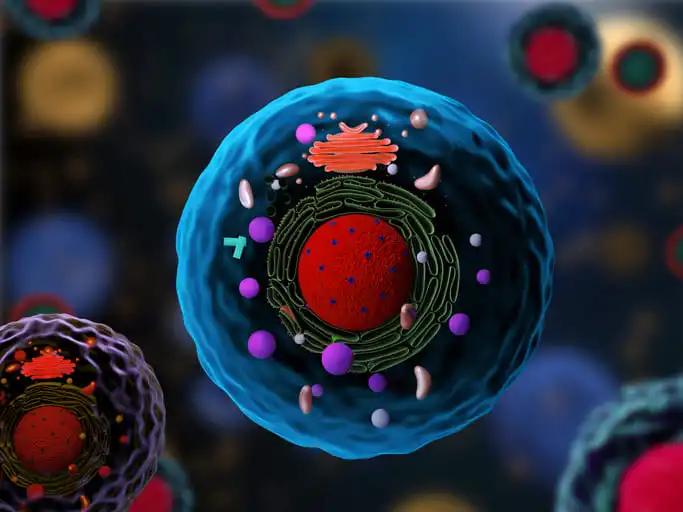KEY TAKEAWAYS
- The phase 3 KEYNOTE-010 (NCT01905657) study aimed to evaluate the OS in previously treated, advanced NSCLC patients with a PD-L1 TPS between ≥50% and ≥1% who received pembrolizumab compared to docetaxel.
- Patients who completed pembrolizumab treatment and experienced recurrence could receive a second course of the drug for up to 17 cycles (1 year).
- The 5-year follow-up data showed that pembrolizumab improved overall survival compared to docetaxel.
- Among the patients who completed 35 cycles (2 years) of pembrolizumab treatment, the 3-year OS rate was 83.0%, and the objective response rate for patients who received a second course of pembrolizumab was 52.4%.
- The study demonstrates that pembrolizumab provides superior long-term efficacy compared to docetaxel in previously treated patients with advanced NSCLC and PD-L1 TPS ≥50% and ≥1%.
In the KEYNOTE-010 study, pembrolizumab improved overall survival (OS) compared to docetaxel in previously treated, advanced NSCLC patients with a programmed death-ligand 1 (PD-L1) tumor proportion score (TPS) between ≥50% and ≥1%. Researchers reported 5-year safety and efficacy follow-up data for the KEYNOTE-010 study. Patients were randomized to receive pembrolizumab 2 mg/kg or 10 mg/kg every three weeks or docetaxel 75 mg/m2 every three weeks for as many as 35 cycles (2 years). Patients who completed treatment with pembrolizumab and subsequently experienced recurrence could receive a second course of the drug for up to 17 cycles (1 year). In this analysis, Pembrolizumab doses were grouped.
Randomization was performed on 1034 patients (pembrolizumab, n = 691; docetaxel, n = 343). The median duration of the study’s follow-up was 67.4 months (60.0-77.9). The 95% confidence interval for the hazard ratio for OS was 0.55 (0.440.69) for patients with PD-L1 TPS ≥50% and 0.70 (0.610.80) for those with PD-L1 TPS ≥ 1%. Pembrolizumab’s 5-year OS rates were 25.0% versus 8.2% in patients with PD-L1 TPS ≥50% and 15.6% versus 6.5% in patients with PD-L1 TPS ≥1%. The 3-year OS rate among 79 patients who completed 35 cycles/2 years of pembrolizumab was 83.0% (5 years from randomization). Twenty-one patients received a second course of pembrolizumab; eleven (52,4%) had an objective response after beginning the second course, and fifteen (71,4%) were still alive during data collection. According to exploratory biomarker analysis, a more significant tissue tumor mutational burden (175 mutations per exome) was associated with better outcomes with pembrolizumab. Pembrolizumab continued to provide superior long-term efficacy over docetaxel in previously treated patients with advanced NSCLC and PD-L1 TPS 50% and 1%. The study results demonstrate that pembrolizumab is the standard of care in the second-line and later settings.
Source: https://pubmed.ncbi.nlm.nih.gov/34048946/
Clinical Trial: https://clinicaltrials.gov/ct2/show/NCT01905657
Herbst RS, Garon EB, Kim DW, Cho BC, Gervais R, Perez-Gracia JL, Han JY, Majem M, Forster MD, Monnet I, Novello S, Gubens MA, Boyer M, Su WC, Samkari A, Jensen EH, Kobie J, Piperdi B, Baas P. Five Year Survival Update From KEYNOTE-010: Pembrolizumab Versus Docetaxel for Previously Treated, Programmed Death-Ligand 1-Positive Advanced NSCLC. J Thorac Oncol. 2021 Oct;16(10):1718-1732. doi: 10.1016/j.jtho.2021.05.001. Epub 2021 May 26. PMID: 34048946.



